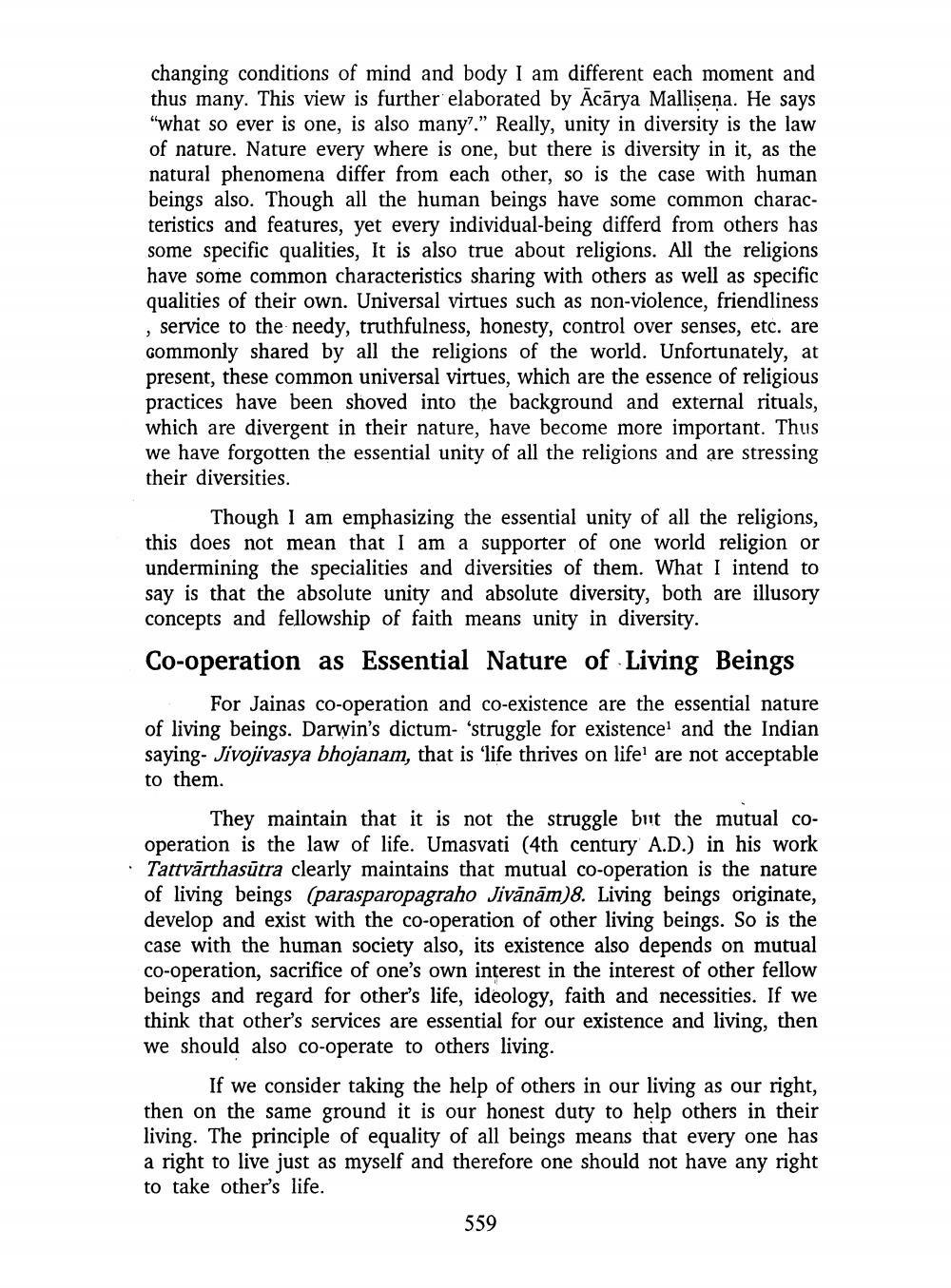________________
changing conditions of mind and body I am different each moment and thus many. This view is further elaborated by Ācārya Mallisena. He says "what so ever is one, is also many?.” Really, unity in diversity is the law of nature. Nature every where is one, but there is diversity in it, as the natural phenomena differ from each other, so is the case with human beings also. Though all the human beings have some common characteristics and features, yet every individual-being differd from others has some specific qualities, It is also true about religions. All the religions have some common characteristics sharing with others as well as specific qualities of their own. Universal virtues such as non-violence, friendliness , service to the needy, truthfulness, honesty, control over senses, etc. are Gommonly shared by all the religions of the world. Unfortunately, at present, these common universal virtues, which are the essence of religious practices have been shoved into the background and external rituals, which are divergent in their nature, have become more important. Thus we have forgotten the essential unity of all the religions and are stressing their diversities.
Though I am emphasizing the essential unity of all the religions, this does not mean that I am a supporter of one world religion or undermining the specialities and diversities of them. What I intend to say is that the absolute unity and absolute diversity, both are illusory concepts and fellowship of faith means unity in diversity.
Co-operation as Essential Nature of Living Beings
For Jainas co-operation and co-existence are the essential nature of living beings. Darwin's dictum- 'struggle for existence and the Indian saying. Jivojivasya bhojanam, that is 'life thrives on lifel are not acceptable to them.
They maintain that it is not the struggle but the mutual cooperation is the law of life. Umasvati (4th century A.D.) in his work Tattvārthasūtra clearly maintains that mutual co-operation is the nature of living beings (parasparopagraho Jivānām)8. Living beings originate, develop and exist with the co-operation of other living beings. So is the case with the human society also, its existence also depends on mutual co-operation, sacrifice of one's own interest in the interest of other fellow beings and regard for other's life, ideology, faith and necessities. If we think that other's services are essential for our existence and living, then we should also co-operate to others living.
If we consider taking the help of others in our living as our right, then on the same ground it is our honest duty to help others in their living. The principle of equality of all beings means that every one has a right to live just as myself and therefore one should not have any right to take other's life.
559




